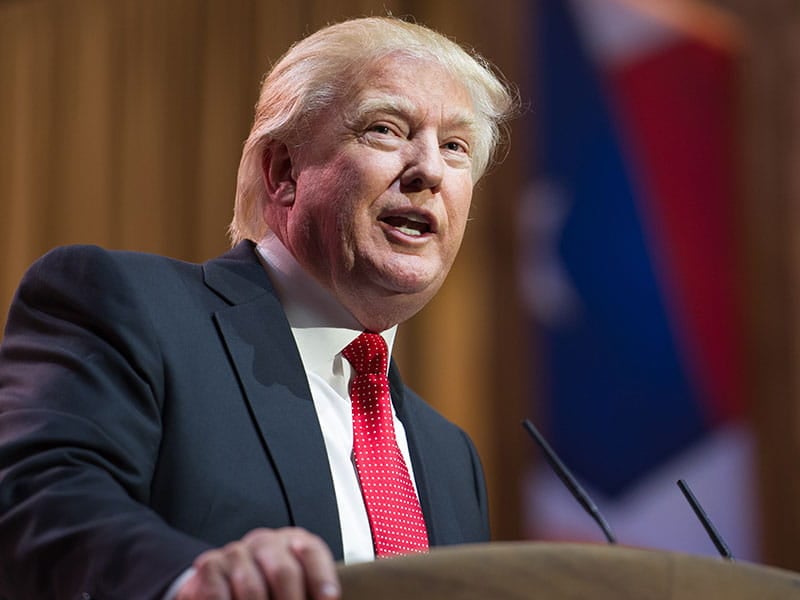Addressing the 49th National Prayer Breakfast, an annual gathering traditionally attending by presidents, Bush promoted a series of initiatives allowing religious institutions to compete for a share of social-services money that the government distributes. Bush also has proposed tax breaks to encourage charitable giving.
"Government cannot be replaced by charity, but it can welcome them as partners instead of resenting them as rivals," he said.
The Republican president said religious faith is deeply ingrained in America.
"Our country has recognized the contribution of faith," he said. "We do not impose any religion. We welcome all religions. We do not prescribe prayer. We welcome all prayer. This has been the tradition of our nation and it will be the standard of my administration."
Critics have suggested that his religion-based initiatives could blur the lines separating church and state, a point denied by Bush.
"An American president serves people of every faith and serves some with no faith at all. Yet I have found that my faith helps me in the service of people," said Bush, a Methodist and regular churchgoer.
``Men and women can be good without faith, but faith is a force of goodness,'' Bush told the crowd of several thousand at a Washington hotel. ``Men and women can be compassionate without faith, but faith often inspires compassion. Human beings can love without faith, but faith is a great teacher of love.''
Bush credited the faith of national leaders for helping influence changes in society concerning slavery and civil rights.
``The same impulse over the years has reformed prisons and mental institutions, hospitals, hospices and homeless shelters,'' he said.
On a more personal note, the president spoke of his appreciation for ``countless Americans'' praying for his family.
The National Prayer Breakfast is a ritual dating back to 1952 when a group of lawmakers gathered to pray for newly elected President Eisenhower and his government. The gathering is attended by many leading Christian leaders, and has a general evangelical tone, although non-Christians are also on hand.
Among those at the event Thursday were the leaders of Congo, Rwanda, Macedonia and Montenegro. Ordinary overseas Christians--many of the pastors or evangelists--are brought to Washington for the event by various American evangelical groups.
Bush, capping a week in which he has focused on less-fortunate members of society, also was proposing new federal help for disabled Americans.
His "New Freedom Initiative," as he dubbed it during his campaign, would help by improving their access to jobs and to technology making it easier to work from home.
He proposed in June to triple funds for research into independent living to $33 million a year; create a $20 million annual matching fund for companies to buy telecommuting equipment such as computers; and create a $5 million annual fund to provide technical assistance for small businesses that face financial burdens in complying with the Americans With Disabilities Act.
Bush's father signed the act as president in 1990.
Bush invited members of the Kennedy family to the White House Thursday night to watch "Thirteen Days," a movie about President Kennedy and the Cuban missile crisis.
Rep. Patrick Kennedy, D-R.I., Maryland Lt. Gov. Kathleen Kennedy Townsend and Sen. Edward Kennedy, D-Mass., accepted the invitation for dinner and the movie. Also invited were Caroline Kennedy and her husband.
Several Hollywood stars, including Martin Sheen, Michael Douglas and Paul Newman, used word of the screening to call on Bush to keep a promise on nuclear weapons.
Bush pledged during his campaign for the White House to remove as many weapons as possible from the high alert status known as "hair-trigger." The actors were leading a campaign to flood the White House with phone calls from Americans who want him to keep his promise.

